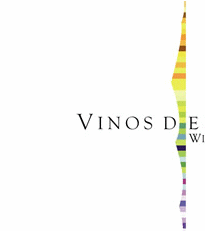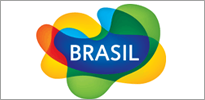Ecuador: Ecuador Finance Profile 2012
2012/03/08
Ecuador Finance Profile 2012
Market-based competition The market economy is weak, like the rest of the country’s institutions. The informal sector has a strong presence, as does the “bazaar economy.” The government created a normative framework to protect them, and the informal economy was even included in the constitution, under the argument that it was a way of guaranteeing the right to work. Laws have also been drawn up which made municipal regulations designed to regulate the informal economies as invalid. It is worth pointing out that the government’s political and economic project openly criticizes the market economy, instead promoting a model called “21st century socialism” which, without excluding the private sector, promotes the active intervention of a strong state in society and the economy.
Anti-monopoly policy Rafael Correa’s government is in favor of state intervention in the economy via public companies, which generally enjoy monopolies. Public companies, which in the previous period of reform had been divided to make them more attractive for possible privatization, have been reconstituted. Due to the reduced size of the market and the concentration of business, Ecuador has tended towards oligopoly with respect to certain basic consumer products (flour, sugar, etc.). In this field, the government has made efforts to change the situation, resorting to greater regulation or the direct intervention of the state as an agent in this economic process
Liberalization of foreign trade The government has adopted protectionist policies by increasing tariffs on a number of imports. The government justifies the measure due to the necessity to limit the increase in purchases abroad, as a result of the adoption of the dollar in 2000. The government’s commercial strategy has been focused on finding new markets (such as Iran or Indonesia), decreasing emphasis on the traditional markets for Ecuadorian products and strengthening so-called South-South relations. In this sense, the reticence shown in joining the Bolivarian Alliance for the Peoples of Our Americas (ALBA) is striking, despite close relations with the Venezuelan government, which is a promoter of the Alliance. However, now that the regional negotiations for a commercial agreement with the European Union have broken down, the government has shown an inclination to negotiate a bilateral free trade agreement with Europe.
Banking system The banking system has been recovering since the crisis of the late 1990s. However, taking into account the country’s risk levels, bankers are offering high interest rates for loans and low rates for savings. Faced with this scenario, the government has intervened in the Superintendency of Banks (an organ in charge of regulation, which included the representation of bankers) arguing that it was necessary to have greater control over banks. With the passage of the Law on Financial Security, it created a new legal framework that fixes maximum and minimum interest rates and limits the charging of commissions. These measures have notably reduced banks’ profits. Faced with this situation, the Association of Private Banks issued a press release in which they warned of impending industry troubles due both to the international financial crisis, which made it difficult to get credit on the international market, and the operating restrictions imposed by the new law. The crisis was announced at the end of 2008, and as of the end of the review period, it was not yet possible to evaluate the real seriousness of the situation. The government claimed that there was no risk to the banking system and announced that if “destabilizing maneuvers” continued, it would intervene in the financial system. As of this writing, the situation had calmed somewhat, making it very difficult to make predictions.
- Ecuador News
-
- ECUADOR: Guayaquil real estate Big construction projects to substantially improve quality of life
- ECUADOR: Privatization has transformed the transport sector over past decade
- ECUADOR: rban Regeneration Guayaquil Siglo XXI Foundation transforms the image of city
- AFGHANISTAN: Global growth will be disappointing in 2016: IMF's Lagarde
- ECUADOR: Guayaquil's Dramatic Transformation A model for economic progress
- FRANCE: Franco-Brazilian journalist beaten-up in Ecuador leaves the country but promises to return
- Trending Articles
-
- AUSTRALIA: Australia taxes foreign home buyers as affordability bites
- SERBIA: China’s Xi sees Serbia as milestone on new ‘Silk Road’
- CHINA: United States sees China investment talks ‘productive’ after new offers
- INDIA: Indian central bank chief to step down in surprise move
- THAILAND: Foreign investment plummets in junta ruled Thailand
- UNITED STATES: Trump says Britain should leave EU







